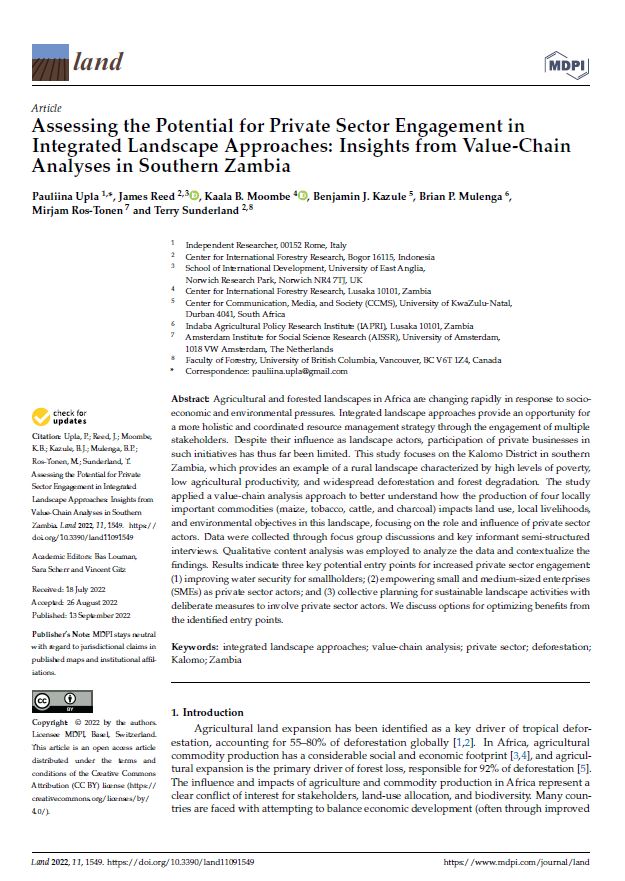Assessing the Potential for Private Sector Engagement in Integrated Landscape Approaches: Insights from Value-Chain Analyses in Southern Zambia
Using the Kalomo District, Zambia as a case study, this paper aims to understand the role and influence of private sector actors at landscape scale in the production of four locally important commodities. The study deploys a value chain analysis methodology within the production of maize, tobacco, cattle, and charcoal and analyses the potential role of the private sector in terms of sustainable land use, improving local livelihoods and protecting ecosystems in this particular landscape.
The study stresses that stronger private-sector involvement at landscape scale could help to address funding gaps, create co-funding opportunities, and encourage public-private collaborations. Furthermore, increased engagement of the private sector could also help to green supply chains, avoid land-use conflicts, and protect human rights. Through the value chain analysis, the study has identified three entry points to increase private sector engagement at landscape scale (1) improving water security for smallholders; (2) empowering small and medium-sized enterprises (SMEs) as private sector actors; and (3) collective planning for sustainable landscape activities with deliberate measures to involve private sector actors.
As part of the study, researchers engaged with actors from the government, private sector and farmers through focus group discussions and semi-structured interviews to inform its conclusions and recommendations. For more information on the study, please find related impact story from CIFOR here.
